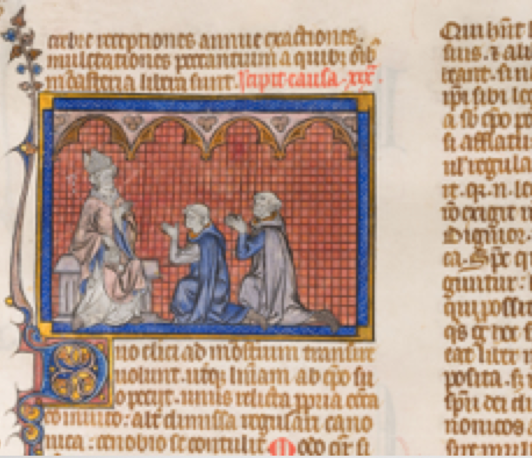Like medieval jurists, modern scholars frequently rely on the authoritative, codified versions of legal norms when considering the relationship between legal developments and social change in the European Middle Ages. Too rarely have medievalists followed the lead of early modernists in emphasizing the multi-sited production and translation of legal knowledge. Yet just as in the early modern era, medieval law did not circulate only in its codified forms; knowledge of its language and provisions could also be transmitted and transformed through other written genres, to say nothing of oral renderings and visual representations. Using a thirteenth-century conciliar decree as a starting point (and building on a newly available online database of medieval ecclesiastical legislation), this talk will accordingly explore the paths by which legal innovations moved from medieval council chambers and university classrooms into local contexts, undergoing significant textual and interpretative transformations along the way.
Rowan Dorin (AB & PhD Harvard; MPhil Cambridge) is Associate Professor of History at Stanford University. In addition to his recent book, No Return: Jews, Christian Usurers, and the Spread of Mass Expulsion in Medieval Europe (Princeton UP, 2023), he has published articles on medieval canon law, Jewish-Christian relations, digital humanities, and the circulation of people, goods, and manuscripts in the premodern world.
Those interested in participating in person or online should register here.
More information can be found here.


No comments:
Post a Comment